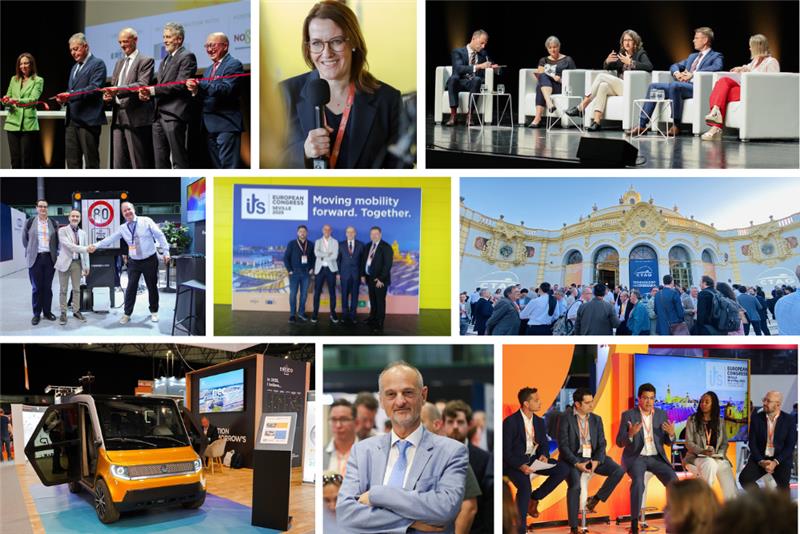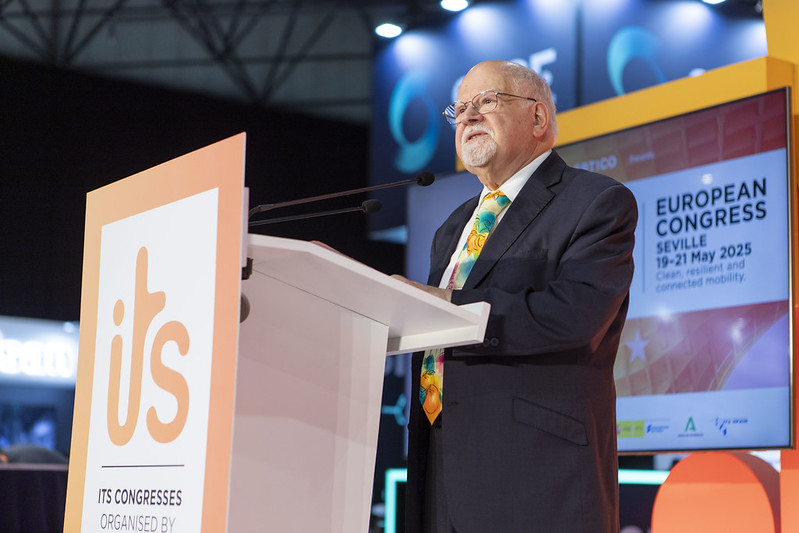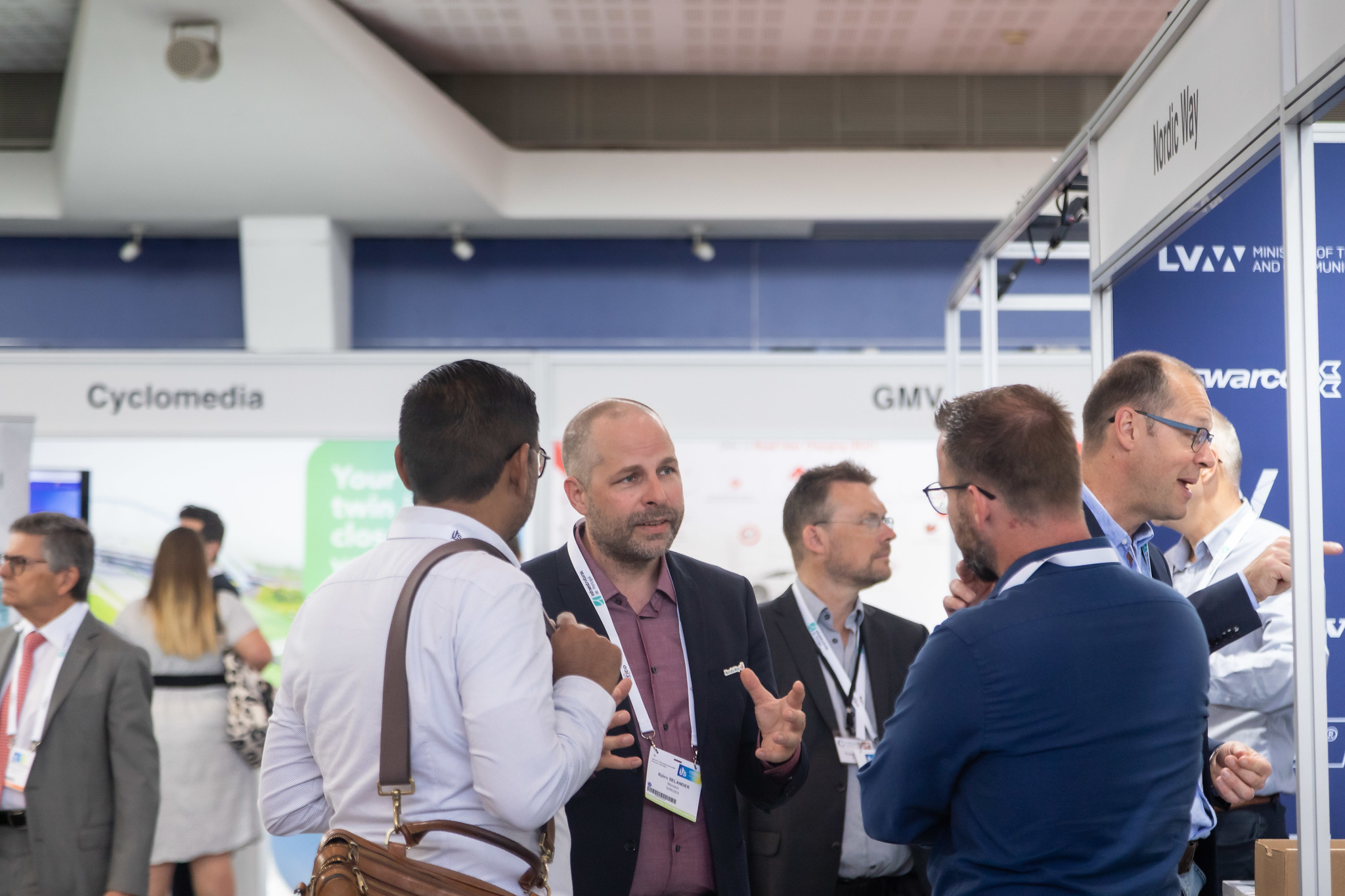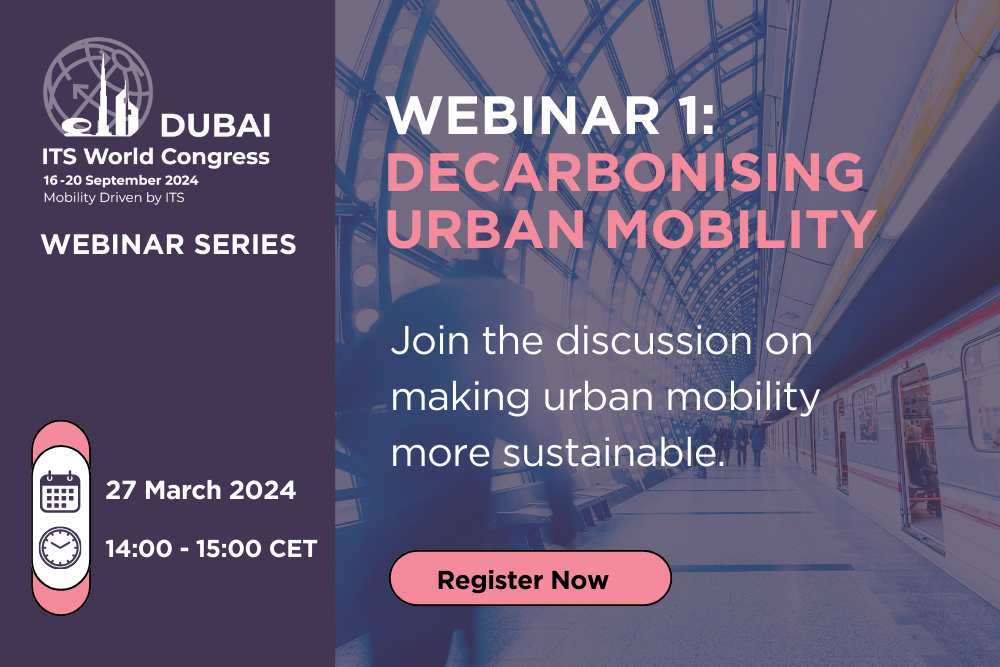Dubai, the city that pushes boundaries and embraces the future, is poised to play a pivotal role in shaping the world of tomorrow’s mobility. As the host of the prestigious 30th ITS World Congress 2024, under the theme “Mobility Driven by ITS (Intelligent Transport Systems),” Dubai stands as a vibrant example of how smart technologies can transform transportation and create a connected, sustainable city.
The esteemed ITS World Congress Dubai 2024 will run from September 16 to 20 at the World Trade Centre. It is being organised in the emirate by the European organisation ERTICO – ITS Europe in partnership with Dubai’s Roads and Transport Authorities (RTA).
The international meet is expected to bring together ITS specialists, more than 500 exhibitors and up to 20,000 international participants from across the globe to discuss connected and automated mobility, clean and eco-mobility and transport and logistics. This confluence of diverse perspectives and experiences is the breeding ground for breakthrough ideas and game-changing partnerships, propelling the future of smart mobility forward.
The ITS World Congress couldn’t have chosen a more fitting destination. Dubai, with its relentless pursuit of innovation, has already laid the groundwork for a transportation ecosystem that seamlessly integrates technology and human needs.
Last year, RTA launched its Digital Strategy 2023-2030, which has 82 ground-breaking projects and initiatives with an investment of Dh1.6 billion. Designed to propel RTA to the forefront of digital innovation, redefining mobility through fintech, enhancing service adoption rates, upskilling employees, and developing cutting-edge Artificial Intelligence (AI) applications.
At the time of the announcement, His Excellency Mattar Al Tayer, RTA’s Director-General, and Chairman of the Board of Directors, said, “RTA is steadfastly embracing modern technologies, spearheading digital transformation, and leveraging resources to deliver innovative, quality-centric services.”
This relentless pursuit of progress makes Dubai the ideal stage for showcasing the transformative potential of ITS solutions.
Dubai’s iconic Metro, a driverless marvel, which showcases the city’s commitment to efficient and accessible public transport. It serves over 1.7 million passengers per day.
The arterial network of the Dubai Metro has two lines – the Red and Green – which have been running for over a decade. The Green Line stations are in Bur Dubai and Deira while the Red Line connects the airport to Downtown, Dubai Marina and Expo 2020.
The RTA recently mentioned that they are considering expanding their services or facilities– the Dh18 billion Dubai Blue line, which is expected to start operations in 2029, will be 30 kilometers long, with 15.5km running underground and 14.5km above ground.
Another fully-automated rail system in Dubai is the Dubai Tram, which is the first tramway project outside Europe powered by a ground-based electric supply system extending along the track. Both systems – the Dubai Metro and Tram – not only transports people from point A to B seamlessly but keeps them connected on the go. There’s free Wi-Fi for users at both stations and during rides.
In keeping with its dedication to sustainable travel, RTA has also taken multiple steps to encourage the public to use mass transit methods such as its busses. One such initiative is the Bus on Demand service, which operates in some areas. In these locations, using an app, registered users can book a ride and type in the pick-up and drop-off spots. Individuals have the option to book either as a solo passenger or as part of a group, with the capacity to accommodate up to six people in these wheelchair-accessible vehicles.
Public transportation is key to eco-friendly practices and there are more than 1,500 public buses in the city including feeder busses that connect select bus stops with the Metro.
Speaking of bus stops, the RTA is revamping quite a few of them too. It announced the addition of 762 new bus stops across the city in December 2023, which are expected to be completed next year. These will partially airconditioned, shaded and some will be constructed using 3D printing technology.
A smart city is one that uses ITS tech to connect city services and people, and use technology to address and resolve urban challenges, one of which is accessibility. Keeping this in mind, RTA has drafted a number of wheelchair-accessible vehicles on the roads that are fitted with special lifts for the wheelchairs, artificial respiratory systems, a wheelchair on board and seats for companions.
In the Dubai Metro, there are tactile floor paths to guide people of detemination impaired persons at the stations, CCTV for hearing-impaired persons and audio notices for visually-impaired persons and designated spaces for a wheelchair in each carriage, located in close to the door.
The Marine Transport stations are similarly equipped to be People of Determination-friendly.
The UAE has issued a smart card called the Sanad card, which gives them access to certain facilities and discounts. On public transit systems, people of determination can travel for free.
The RTA has rolled out a number of apps as well, to make connectivity within and out of the city easy. This includes the award-winning RTA Dubai App, which includes more than 40 services and features; Dubai Drive, with services related to vehicle registration, parking and Salik [tolls]; the Salik App, which deals with everything to do with tolls on roads; and RTA Smart Drive, a route planning app that operates without mobile internet connection. Then there’s the S’hail app, which manages Nol (smart card) accounts and helps you book a taxi or other vehicles and plan inter-city bus journeys. There’s the Nol app, which allows you to top up your Nol card anywhere. And the DTC App, where you can also reserve taxis and limousines.
RTA has also made it easy to pay for public modes of transport using the Nol card. The uses of this smart card have been diversified, so it can be used not just to travel but also to pay for things like groceries at certain supermarkets. It’s a practical upgrade that helps citizens, residents and visitors carry one card for more than one purpose.
And that’s the thing about Dubai – while Dubai may embrace the glitz and glamour of technological marvels, it doesn’t lose sight of the bigger picture.
The city is deeply committed to sustainable practices, and its transportation systems are no exception. The focus on eco-friendly initiatives like electric vehicles, cycling infrastructure, and smart traffic management systems demonstrate Dubai’s commitment to a greener future, aligning perfectly with the ITS World Congress’ emphasis on sustainable mobility solutions.
Sustainability is at the top-of-the-mind in Dubai and for this in 2024, reads the RTA Sustainability Report of 2022, the focus will continue to be on shared and soft mobility, self-driving for passengers and goods and personalized services.
In 2023, RTA held a test drive of an autonomous electric vehicle. On December 14, His Highness Sheikh Hamdan bin Mohammed bin Rashid Al Maktoum, Crown Prince of Dubai and Chairman of The Executive Council of Dubai went on the first test ride in Jumeirah 1.
At the time, HE Al Tayer said: “The testing of Cruise AVs is a crucial step towards enhancing Dubai’s global leadership in implementing self-driving transport. It contributes to Dubai’s Strategy for Smart Self-Driving Transport aimed at converting 25 per cent of all mobility journeys in the emirate to self-driving modes by 2030.”
The RTA is always looking for new ways to improve transportation in Dubai. The agency is currently working on a number of future-oriented projects, such as the development of flying taxis.
In the year 2026, RTA plans to roll out a flying taxi service. For this it has partnered with Austrian company FlyNow, which will take off with cargo services before adding passengers to its list. The eVTOL, an electric vertical take-off and landing aircraft, will have a cruise speed of 130km/h. These projects are still in the early stages of development, but it has the potential to revolutionize transportation in Dubai and around the world.
RTA is also tapping artificial intelligence (AI) to help make roads safer for everyone. In 2023, during tech show GITEX 2023, RTA unveiled technology powered by AI to monitor and assess the performance of delivery bike riders operating in Dubai.
RTA also introduced an all-encompassing Enterprise Platform dedicated to the creation and advancement of AI and data science solutions. This platform is capable of efficiently handling data owned by the RTA, restructuring it to facilitate the training of machine-learning models. The platform plays a crucial role in enhancing RTA operations, including predictive maintenance for roads and bridges, planning public transportation routes, crowd management, and various other applications. The 30th ITS World Congress in Dubai isn’t just about showcasing the present; it’s about shaping the future, one where technology serves humanity and propels us towards a more connected, sustainable, and accessible world. When the Congress concludes, the torch of progress will be carried forward, illuminating cities across the globe, and transforming the way we move forever.




